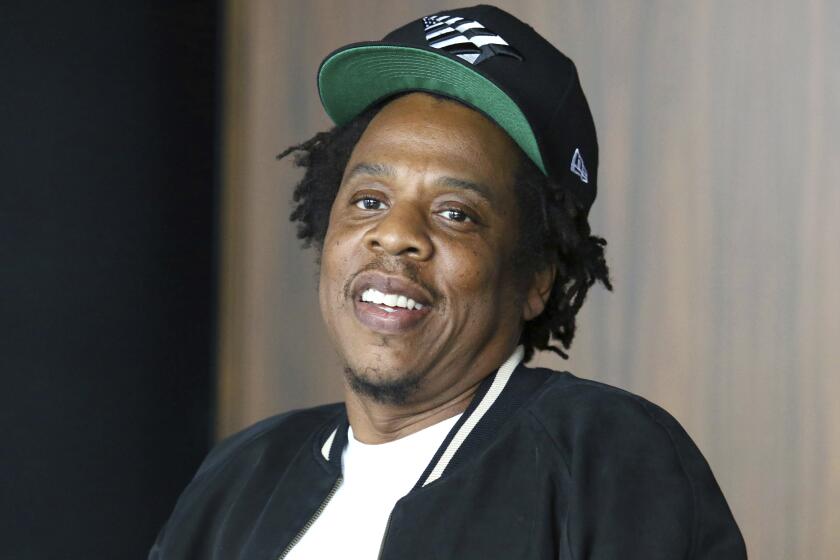Column: We’re all asking the wrong questions about the Jay-Z and NFL partnership
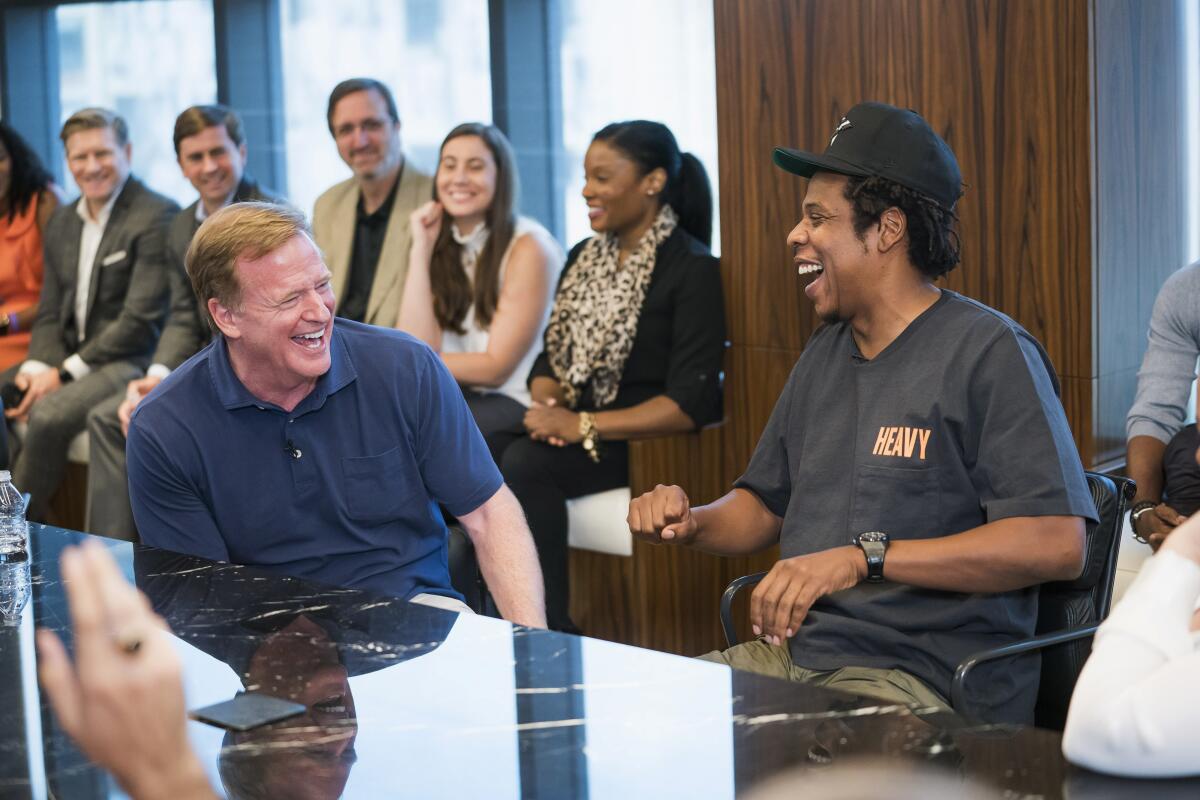
- Share via
Ever since Roc Nation and the NFL announced its partnership around social justice earlier this week, I’ve been trying to find answers for all of the wrong questions.
I’ve spent days peeling back the layers enveloping the tweets of Carolina Panther defensive back Eric Reid and Colin Kaepernick’s girlfriend, Nessa.
I’ve spoken to reporters who attended the news conference announcing the partnership.
The consensus was that the environment in the room was the opposite of one in which a partnership to help those less fortunate was announced. Like me, the attendants wanted answers to immediate questions, and in the hours that followed became laser focused on one: Did Jay-Z speak with Kaepernick before agreeing to the deal and, if so, why would Kaepernick’s girlfriend tweet that he didn’t?
Who was lying?
Who has the most to gain?
Did Jay-Z sell out?
Jay-Z, who turned down the Super Bowl gig last season, and his sports and entertainment company, Roc Nation, have signed a deal with the NFL to consult on live music and activism.
It wasn’t until 48 hours later that I realized the question that matters most is “how much of this will matter?”
Congressman Lyndon B. Johnson voted against every civil rights bill that made it to the floor between 1937 and 1956 and often used racist language.
However, history remembers the Civil Rights Act of 1964 he signed into law as president. One aspect of his life doesn’t excuse the other but in the hierarchy of significant impact, the latter supersedes the former. Whether Johnson did it to honor the memory of John F. Kennedy or if he had a change of heart, at the end of the day sanctioned discrimination suffered a significant blow because of the heroism of a villain.
History is often retold with linear precision, but the way it actually unfolds is closer to a murky labyrinth.
Reid is right in calling the partnership disingenuous given the NFL’s well-established history of addressing important off-the-field matters clumsily in retrospect as opposed to proactive thoughtfulness.
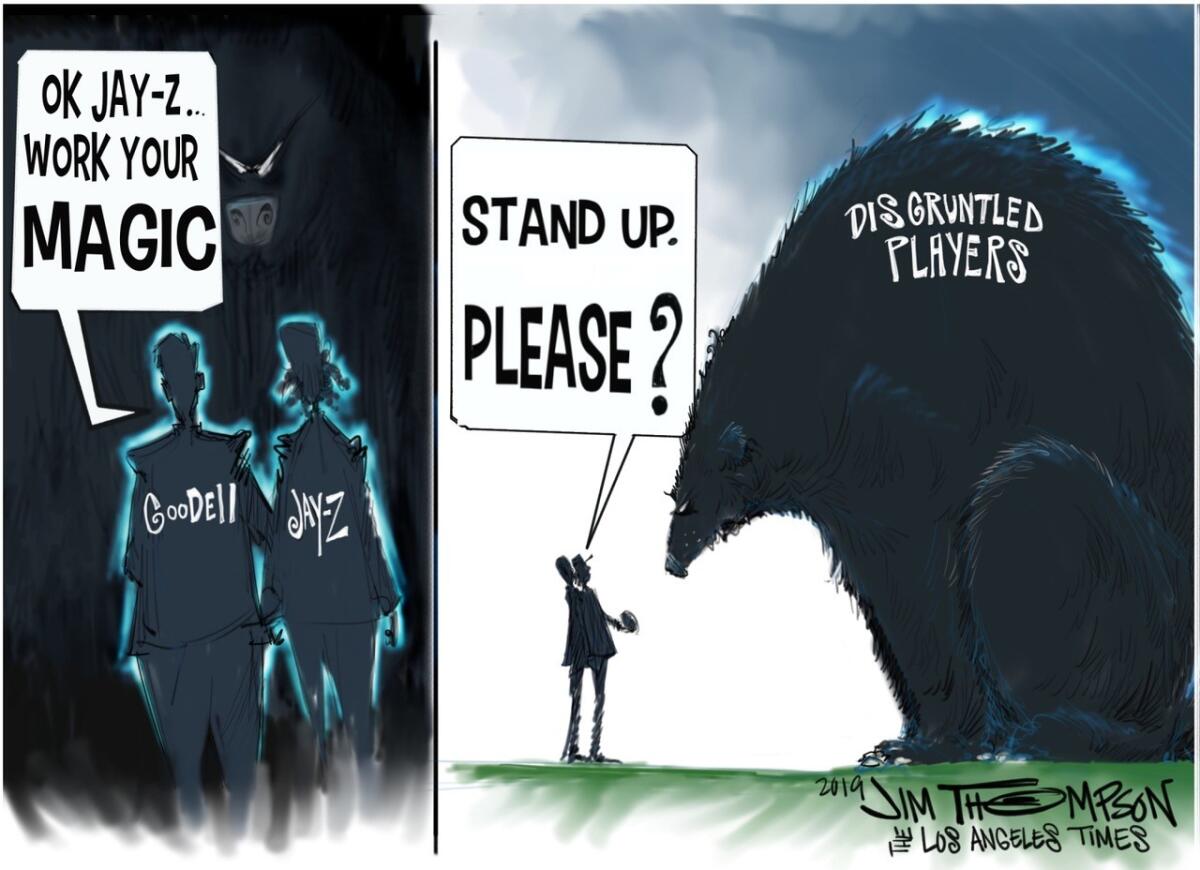
Nonetheless, if the resources of the most powerful league in the country are utilized to improve the lives of minorities and spur real change in the criminal justice system, does it really matter if the NFL did so for publicity or Jay-Z for money?
Of course we want people and corporations to do all of the right things for all of the right reasons. But the reason why there is a tax break for charitable donations is because at some point it became clear “being a good person” wasn’t enough motivation.
Call it human nature, call it greed, I really don’t care as long as it’s also recognized as pragmatism.
The NFL is comprised of well-off do-gooders. Politics aside, you’d be hard-pressed to find a team owner that does not have a long receipt filled with philanthropic work, be it writing a check or rolling up their sleeves.
And the stories I’ve been told over the years about how Commissioner Roger Goodell has quietly helped people in need would bring a tear to any compassionate eye. But typically a person doesn’t reach billionaire status by simply following their heart.
They’re also tethered to the bottom line and as a collective shown a propensity to place the premium on talent versus morality. Do owners and Goodell have their willful blind spots when it comes to social justice issues and disappointing worldview on other topics? Of course they do.
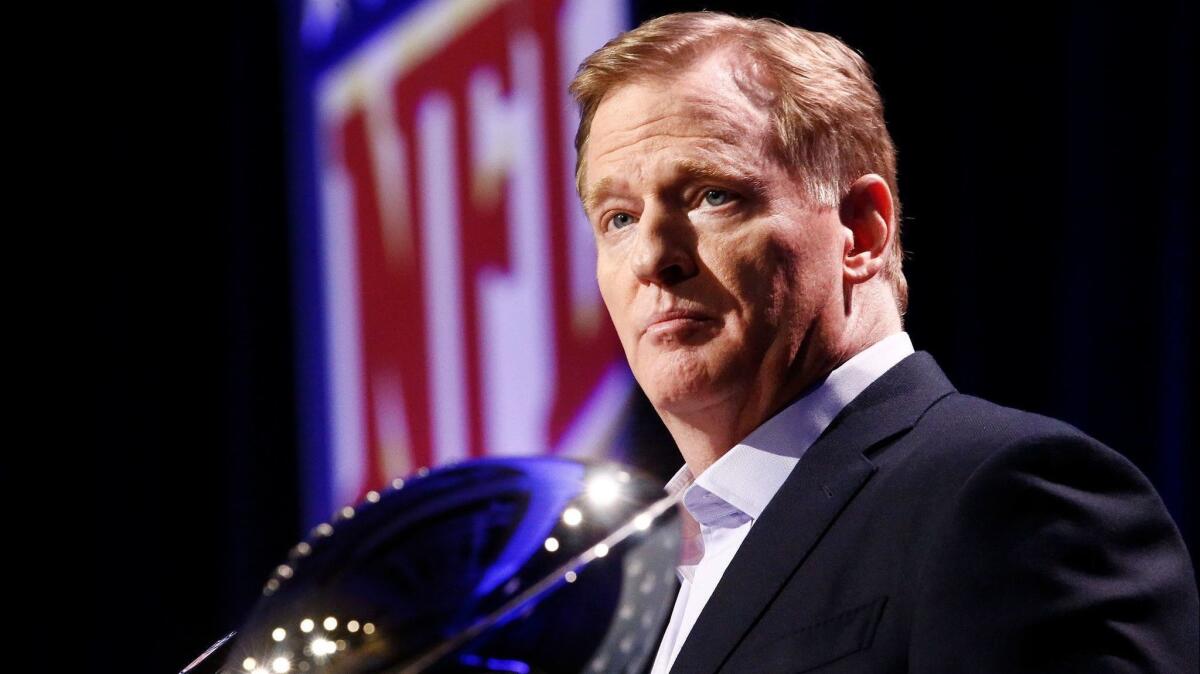
After all, the Raiders’ Richie Incognito walked into a funeral home, told the employees that if they didn’t allow him to sever his deceased father’s head that he was going to shoot them, and was only suspended two games. Did I mention when police arrived they found firearms in his truck?
So yeah … the NFL gets a lot wrong.
But it’s not all wrong.
And this is where Twitter activism butts heads with real-life pragmatism.
Dr. Martin Luther King Jr. not only worked with President Johnson, he praised him, writing, “His approach to the problem of civil rights was not identical with mine — nor had I expected it to be. Yet his careful practicality was, nonetheless, clearly no mask to conceal indifference. His emotional and intellectual involvement was genuine and devoid of adornment.”
The de facto leader of the civil rights movement writing that the man who had voted against civil rights as a member of Congress for nearly 20 years had recently become a champion of civil rights.
Did Johnson have a change of heart or was he reading the political tea leaves?
Good questions to ask in the moment, but again the wrong one in the big picture.
It’s been more than 50 years since the Civil Rights Act was signed, and how much thought is placed on Johnson’s motivation today?
No, we tend to only reflect on the lasting impact. For historians, it’s an affront to their trade but for the common person, it’s just how it is.
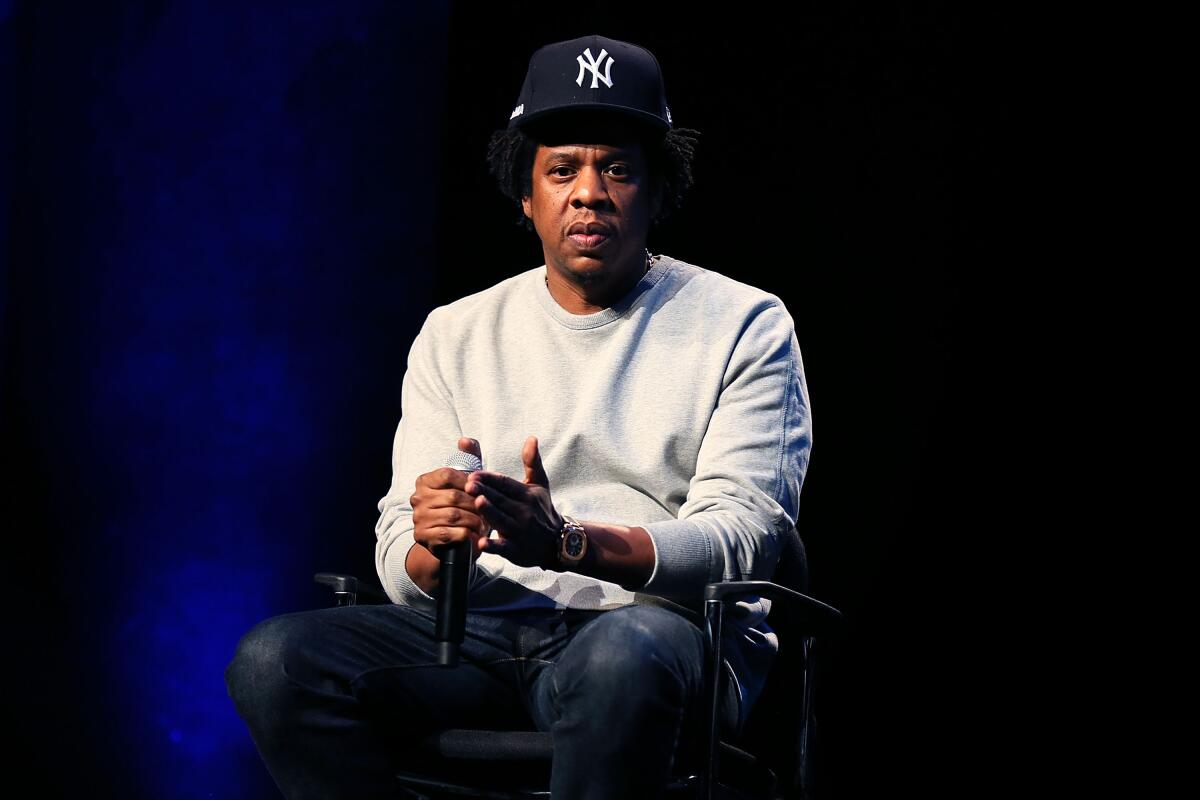
In 50 years, if significant positive change is the byproduct of the the NFL’s partnership with Roc Nation, why the two strange bedfellows came together in the first place would be a forgotten memory. All that would remain is the good.
Conversely, if nothing comes of this marriage, it will be remembered as an exercise in self-serving. The rich helping the rich. A community’s icon turning his back on said community.
But to answer those questions takes time. And admittedly, patience is no longer our culture’s strong suit. But being first to criticize isn’t the same as being right.
The questions I was asking were for the here and now. And that’s the reason why they were wrong. The more pertinent question won’t be answered for many moons to come, much in the way two very rich middle-aged men announced they were planting a tree whose shade they know they shall never sit in.
Why they decided to do so is interesting to discuss. However, if that tree grows and provides much-needed shade, eventually that is what will matter most.
More to Read
Go beyond the scoreboard
Get the latest on L.A.'s teams in the daily Sports Report newsletter.
You may occasionally receive promotional content from the Los Angeles Times.
